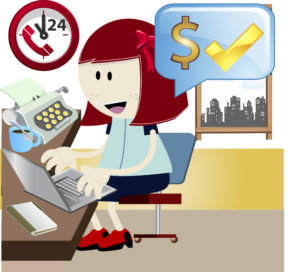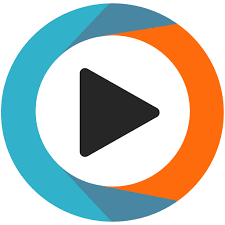Tag: college and career
April is Financial Literacy Month
 The latest national data reports that while a growing number of students graduate high school, college enrollments are decreasing. Students cite a lot of reasons for that:
The latest national data reports that while a growing number of students graduate high school, college enrollments are decreasing. Students cite a lot of reasons for that:
- I can’t afford it
- I can’t get in
- It’s too hard
- I have a good job
- It isn’t worth it
Whatever is to blame, the result is that students increasingly take on the complicated economics of working and raising families without the knowledge, maturity, or experience to succeed at those. High schools are attempting to fill that gap by offering financial literacy classes that teach how to balance finite income from a job against infinite needs and wants.
Since April is Financial Literacy Month, I want to share my favorite online options, all age-appropriate for high school students and financial literacy classes:
Share this:
MS Career Planning: Moving in the Right Direction
I really like the recent trend away from presenting college as the goal for all graduating seniors, opening that up to include a wide variety of careers. Our job as educators is to encourage students in whatever their choice of post-school employment is, be it more education, a technical school, or a job. If we try to force students into a future not of their own choice, they disengage from learning. Ask a Tech Teacher contributor, Bryce Welker, has some ideas on that I think you’ll find interesting:
 As an educator, you want to help your students excel now and in the future. This means you have to do everything possible to prepare them for their careers.
As an educator, you want to help your students excel now and in the future. This means you have to do everything possible to prepare them for their careers.
One way school districts are ensuring this is by introducing career topics and studies to middle school students. According to the Association for Career and Technical Education, middle school is the time when students are the most likely to become disengaged from learning.
This is in part due to them going through puberty, trying to form their own personal identity, and overcoming other challenges that come with navigating new environments. So this is a vital time to introduce courses that teach students about various career opportunities.
Let’s take a look at how educators around the country are helping middle school students plan and direct their future careers.
Share this:
Top 10 Study Group Forums and Websites for High School Students
Sara Stringer, Ask a Tech Teacher contributor, has a list of great websites for high school students. I don’t post enough about high school so I’m thrilled with her article:
 Some students study more productively in groups, working with their peers. Online groups and forums allow them to ask questions and learn from each other outside the traditional classroom in a space where they typically turn to for studying anyway. Some of these tools give them the chance to share their own knowledge, while others let them search through published questions and answers to help them find the information they’re looking for.
Some students study more productively in groups, working with their peers. Online groups and forums allow them to ask questions and learn from each other outside the traditional classroom in a space where they typically turn to for studying anyway. Some of these tools give them the chance to share their own knowledge, while others let them search through published questions and answers to help them find the information they’re looking for.
Because there are so many study guides and websites available to students, we’ve asked the teachers and staff at CalPac to share their favorite online collaborative resources for high schoolers. Here are 10 of the most helpful forums and study group websites that encourage students to work and learn together.
Subject Focused
Physics Forum began as a high school extra credit assignment in 2001, and since then, it’s developed into one of the most popular and helpful science forums on the web. The site provides a community for students and professionals to discuss all areas of science, although it does primarily focus on physics, as the name suggests.
World Literature Forum is an online discussion board that examines all forms of literature and literary news. It’s a place to discuss specific books (fiction and non-fiction) and discover new authors. Categories include general discussions, literature by continent, literary translation, and literary prizes.
Share this:
Study.com Makes the College Dream a Reality for Lots of Students
 In a world where college fees go up every year, where the cost of campus-based classes invariably includes expensive extras, where the time commitment to complete college classes often can’t be balanced with work and family needs, Study.com stands out. These web-based classes offer motivated students a self-paced, self-directed path to achieving their college dreams in an affordable, flexible, quality ecosystem that prepares them for future careers in fields they love.
In a world where college fees go up every year, where the cost of campus-based classes invariably includes expensive extras, where the time commitment to complete college classes often can’t be balanced with work and family needs, Study.com stands out. These web-based classes offer motivated students a self-paced, self-directed path to achieving their college dreams in an affordable, flexible, quality ecosystem that prepares them for future careers in fields they love.
Study.com (formerly called Education-Portal) is a distance learning portal that provides over 70,000 lessons in fifteen subjects (including algebra, calculus, physics, chemistry, macro- and microeconomics, and more) aligned with popular textbooks. The engaging video summaries of textbook material provide access to more than a thousand full-length college courses.
Students sign up for a Study.com membership (there are three options) and take as many classes as they’d like each month. Depending upon the level of service subscribed to, students can view videos, take practice quizzes and exams, and get credit for classes passed through a proctored exam. All they need is an internet connection and a webcam (for proctored exams). Each course has about a hundred videos, each 5-10 minutes in length. In the College Accelerator membership, subscribers earn college credits that can be transferred to any one of over two thousand participating colleges and universities.
Study.com also offers a special (fee-based) Teacher Edition where educators can set up five virtual classrooms with up to 50 students in each, share class-themed videos, assign lessons and quizzes as homework, grade student work, print out worksheets, and get detailed reports on student progress. Lessons can be pushed out to the entire class or specific students. They can be uploaded to Google Classroom, Schoology, Blackboard, and a selection of other LMSs. Students join with a free Study.com account that can be accessed with mobile apps (with the exception of proctored exams).
Share this:
Clutch Prep: When You Need Help With a Class You Must Pass
 Clutch Prep calls themselves “the video version of textbooks” but really, that doesn’t give you the full flavor of what they offer. Their academic how-to videos are textbook-specific so you pick the ones used in your classes, even by your teacher. Videos cover each chapter and can be used as a preview or review. Practice questions monitor understanding to see if you’re ready for summative tests. Answers include an explanation of how to reach the correct answer. Every student is assigned a tutor who is available to answer questions if needed.
Clutch Prep calls themselves “the video version of textbooks” but really, that doesn’t give you the full flavor of what they offer. Their academic how-to videos are textbook-specific so you pick the ones used in your classes, even by your teacher. Videos cover each chapter and can be used as a preview or review. Practice questions monitor understanding to see if you’re ready for summative tests. Answers include an explanation of how to reach the correct answer. Every student is assigned a tutor who is available to answer questions if needed.
So, yes, it’s academic video tutorials–Plus.
Clutch Prep was founded on the idea that students would prefer to re-learn a concept from scratch rather than patch the holes in their knowledge. Geared for college-level classes, this also works well for high school AP classes. With over 348,000 students answering 14,5000 discrete practice problems, 90% of whom improve their grades, it seems like a no-brainer. You can sign up for free to watch a limited number of videos. The full program requires a fee that varies depending on how many classes you take and how you pay.
Share this:
April is Financial Literacy Month–Try these Resources
 When students graduate from high school, a majority enter the working world where they are expected to balance budgets, pay bills, and submit rent and car payments on time. All of these expenses must be paid from whatever money they get from the job(s) they find after graduation. The world expects them to pay these critical bills before eating out, buying clothes, or entertaining themselves.
When students graduate from high school, a majority enter the working world where they are expected to balance budgets, pay bills, and submit rent and car payments on time. All of these expenses must be paid from whatever money they get from the job(s) they find after graduation. The world expects them to pay these critical bills before eating out, buying clothes, or entertaining themselves.
That’s not as easy as it sounds. Most new jobholders never had to think about costs vs. revenue, instead relied on parents to keep a roof over their head, heat and AC turned on, and gas in the car (and a car in the driveway). Needless to say, paying these essential bills may be daunting, even confusing.
The good news is: Half of the nation’s schools require a financial literacy course. The bad news is it’s not mandatory.
Last year, I published a list of eight great financial literacy sites for grades 3-12. Now, just in time for April’s Financial Literacy Month, the business world has released an impressive list of additional resources to help teens see through the murkiness of financial independence. During April, give students at least a few hours to visit one or more of these excellent sites:
Share this:
How to Prepare for the SAT
 Taking the Scholastic Aptitude Test (SAT) has become a right-of-passage for high school students as they leave formal education and enter the next phase of learning. Over seven million will take SAT tests in 2018 in January, March/April, May, June, October, November, or December. Some will take it for the first time; some for the umpteenth time. For many, it represents a last desperate attempt to qualify for the college of their dreams.
Taking the Scholastic Aptitude Test (SAT) has become a right-of-passage for high school students as they leave formal education and enter the next phase of learning. Over seven million will take SAT tests in 2018 in January, March/April, May, June, October, November, or December. Some will take it for the first time; some for the umpteenth time. For many, it represents a last desperate attempt to qualify for the college of their dreams.
In an earlier article, I focused on preparation for the essay portion of the SAT. This time, I’ll discuss some of the great online sites that help students prepare for the math and reading portions. I’ve based my selections on the following criteria:
- ease of use — accounts are easy to set up with access to both the site and materials quick and intuitive
- well-rounded — nicely differentiated tools that address varied student learning styles
- quantity and quality of available prep materials — materials are both in-depth and in a variety of formats (written, online, video, live/chat) with explanations of answers
- cost vs. value — free is nice but if students get good value for fee-based resources, that’s just as important
- time commitment — students can spend as much or little time as they have on any given day
Here are eleven options for SAT preparation, from my Top Five choices to six Honorable Mentions. All are easy to use, differentiated, up-to-date on the recent changes to the SAT, and represent a good investment of both time and money:
Share this:
UWorld’s Unique SAT Prep Site
 When I first visited UWorld’s College prep site, I expected what usually is included on free SAT/ACT prep sites–questions, answers, and a lot of cheerleading.
When I first visited UWorld’s College prep site, I expected what usually is included on free SAT/ACT prep sites–questions, answers, and a lot of cheerleading.
I should have known better. UWorld is a leading provider of question bank materials for professional licensing exams like USMLE, ABIM, and ABFM, considered by many to be the gold standard in test preparation. Now, UWorld has expanded into SAT prep (as well as ACT and AP prep). The site includes over 1200 questions written by experienced educators and designed to be similar to what students will find on the real SAT. With each question is a rigorous explanation, step-by-step instructions, and helpful images about the logic behind answers.
Features include:
- Choose your difficulty level–low, medium, hard.
- Get hints to help you find a starting point for the answer.
- Customize practice tests to focus on mastering specific concepts within subjects.
- Create your own flashcards for quick review.
- Track your time and performance to improve your pace.
- Monitor progress with reports and graphs.
- Compare your results to peers as a gauge of performance. This includes questions they got correct, how much time they took answering individual questions, and the types of questions they are struggling with.
- Identify weaknesses and improve strengths.
- Flag questions that you’d like to review later.
- Define difficult words from within the app (for reading prep).
Registered students can access questions at the pace they’d like, take full timed tests to build test-taking stamina, pause during testing, flag questions they want more work on, save generated tests to finish or retake later, and more.
Share this:
8 Websites For Financial Literacy Month
 I published this about a year and a half ago, but with April’s focus on financial literacy, it’s time to repost.
I published this about a year and a half ago, but with April’s focus on financial literacy, it’s time to repost.
When kids read that America’s $18 trillion+ debt is accepted by many experts as ‘business as usual’, I wonder how that news will affect their future personal finance decisions. Do they understand the consequences of unbalanced budgets? The quandary of infinite wants vs. finite dollars? Or do they think money grows on some fiscal tree that always blooms? The good news is: Half of the nation’s schools require a financial literacy course. The bad new is: Only half require a financial literacy course.
If your school doesn’t teach a course about personal economics, there are many online sites that address the topic as mini-lessons. Some are narrative; others games. Here are eight I like. See if one suits you:
Banzai
Banzai is a personal finance curriculum that teaches high school and middle school students how to prioritize spending decisions through real-life scenarios and choose-your-own adventure (kind of) role playing. Students start the course with a pre-test to determine a baseline for their financial literacy. They then engage in 32 life-based interactive scenarios covering everything from balancing a budget to adjusting for unexpected bills like car trouble or health problems. Once they’ve completed these exercises, they pretend that they have just graduated from high school, have a job, and must save $2,000 to start college. They are constantly tempted to mis-spend their limited income and then must face the consequences of those actions, basing decisions on what they learned in the 32 scenarios. Along the way, students juggle rent, gas, groceries, taxes, car payments, and life’s ever-present emergencies. At the end, they take a post-test to measure improvement in their financial literacy.
Share this:
How to Prepare for the SAT Essay
 Seven million students took the SAT test last year. While it traditionally is an assessment tool for college-bound seniors, more and more high schools are choosing it as an exit exam for graduating seniors (such as these changes in Ohio and the State of Washington). Driven in part by the educational imperative to minimize student testing, what better solution than a test already heavily vetted as being inclusive and cross-cultural that many students are familiar with.
Seven million students took the SAT test last year. While it traditionally is an assessment tool for college-bound seniors, more and more high schools are choosing it as an exit exam for graduating seniors (such as these changes in Ohio and the State of Washington). Driven in part by the educational imperative to minimize student testing, what better solution than a test already heavily vetted as being inclusive and cross-cultural that many students are familiar with.
In this article, I’ll focus on preparation for the SAT essay portion. General preparation hints include:
- practice good writing with every school essay students write
- use academic-specific vocabulary whenever possible
- take practice tests
- read a lot — and let that inform your writing
Here are three different approaches to preparing for the essay portion:
- Khan Academy — work on the students’ unique writing problems experienced in their PSAT or earlier SATs
- Revision Assistant — practice writing over a long term and receive targeted feedback to improve skill
- Mindsnacks SAT vocabulary — develop depth in academic vocabulary that improves not only student writing but their understanding of what they’re reading







































